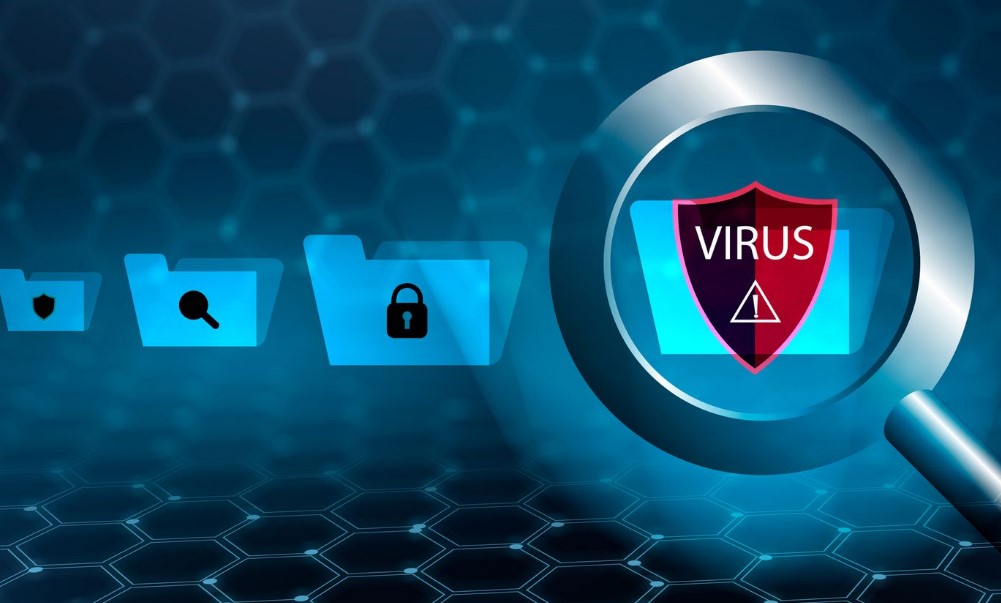Best Virus Protection Solutions: Keep Your Devices Safe in 2024
As technology continues to advance, our reliance on digital devices grows. From storing sensitive data to conducting financial transactions, our devices are essential for daily activities. However, this convenience also comes with risks. In recent years, cyber threats have become more sophisticated, targeting unsuspecting users with alarming regularity. Whether it’s a personal computer, smartphone, or tablet, ensuring that your devices are protected is crucial for maintaining your privacy, data integrity, and online security.
Understanding the Importance of Virus Protection

When we talk about virus protection, we refer to software solutions designed to defend your devices from malicious programs or online threats. These threats can include anything from harmful code that could steal your personal information, to software that disrupts your device’s normal functioning. Without protection, your device could become vulnerable to a range of harmful activities, including identity theft, loss of data, and system corruption.
With the increasing number of cyber threats targeting users daily, investing in reliable virus protection is no longer optional—it’s a necessity. Whether you’re browsing the web, accessing email, or making online purchases, having proper protection ensures that these activities don’t expose your sensitive information to potential threats. Virus protection programs work by scanning for harmful software, preventing infections before they can affect your system.
Key Features of Virus Protection
Virus protection software plays a critical role in safeguarding digital devices, preventing unauthorized access, and ensuring a smooth online experience. In today’s fast-paced, interconnected world, having robust virus protection is more essential than ever. Whether you’re using a PC, Mac, smartphone, or tablet, virus protection software offers multiple key features that help ensure your device is safe from various online threats. Let’s explore some of the key features that make virus protection software effective in securing your devices.
1. Real-Time Protection
One of the most essential features of any virus protection software is real-time protection. This feature actively monitors your device for any suspicious activity and potential threats while you are using your device. Real-time protection scans incoming data, emails, files, and websites in real time to prevent any harmful files or viruses from being executed. If the software detects any malicious activity, it immediately blocks the threat before it can cause damage.
2. Automatic Updates
Virus protection software must be constantly updated to stay ahead of the latest threats. Cybercriminals are always developing new types of malware, ransomware, and other harmful programs, which is why virus protection software needs to be regularly updated to detect and combat these evolving threats. Automatic updates ensure that your virus protection software is always up to date without requiring you to manually download and install the latest virus definitions. This feature helps maintain the effectiveness of the software, ensuring that your device is always protected against the most current security risks.
3. Email and Attachment Scanning
Email is one of the most common ways malicious software is delivered to a device, typically via email attachments or embedded links. Virus protection software scans incoming emails and their attachments for any potential threats. It detects and blocks harmful files and phishing attempts designed to trick users into revealing personal or sensitive information. This proactive scanning helps prevent infections that might otherwise enter your system through seemingly innocent emails.
4. Safe Browsing and Anti-Phishing
Phishing is a common tactic used by cybercriminals to deceive users into disclosing sensitive information, such as login credentials, credit card details, or personal identification numbers. Many virus protection solutions come with built-in anti-phishing features that help block malicious websites designed to trick users into providing their personal data. These features work by warning you when you’re about to visit a suspicious site or blocking it entirely.
5. Firewall Protection
A firewall acts as a barrier between your device and external networks, monitoring both incoming and outgoing data traffic. While many virus protection programs come with built-in firewalls, some users may need to enable or configure them. A properly configured firewall prevents unauthorized access from external sources and can block harmful data packets from entering your device.
6. File and System Scanning
Virus protection software also includes tools for scanning files and the entire system for potential threats. Users can run full or custom scans to detect and remove harmful files, programs, or traces of previous infections. These scans are crucial for identifying malware that may have bypassed real-time protection or that might have been installed unintentionally. Some virus protection software allows users to schedule scans for off-peak hours, ensuring that scans do not interfere with normal computer usage.
7. Data Backup and Recovery
Many virus protection programs offer additional features such as cloud storage or data backup. In case your device becomes infected or compromised, these backup solutions can help protect important documents, files, and settings. With cloud-based backups, files can be restored to a clean system if needed, reducing the risk of data loss due to attacks like ransomware or accidental deletion. This feature adds an extra layer of security, ensuring that even in the event of an infection, your data can be easily recovered.
8. Parental Controls
For families, virus protection software often includes parental control features that allow parents to manage their children’s online activity. These controls can block access to inappropriate websites, monitor online behavior, and restrict certain applications. Parental control features can also help manage screen time and prevent children from accessing harmful or malicious content while they use devices. This is an essential feature for families looking to provide a safe and secure online experience for younger users.
9. Virtual Private Network (VPN)
Some virus protection software packages also come with an integrated Virtual Private Network (VPN). A VPN encrypts your internet connection, making it difficult for hackers or unauthorized entities to track your online activities. It also masks your IP address, providing anonymity while browsing the web. Using a VPN with your virus protection software enhances your privacy and ensures secure browsing, particularly when using public Wi-Fi networks, which are typically more vulnerable to cyberattacks.
10. System Optimization
In addition to protecting your device from threats, many virus protection solutions offer system optimization tools. These tools help improve device performance by cleaning up unnecessary files, clearing cache, and fixing registry issues. By regularly optimizing your system, these tools can improve speed and efficiency, ensuring that your device runs smoothly even when protection features are active.
Benefits of Using Virus Protection Software
Investing in virus protection software offers several substantial benefits. These range from preventing data loss to improving overall device performance. Let’s take a closer look at why you should prioritize having reliable virus protection software in 2024:
1. Prevents Data Loss and Corruption
One of the most immediate benefits of virus protection software is its ability to prevent data loss. Infections caused by malicious software can corrupt your important files, render them unreadable, or even delete them permanently. By employing antivirus software, you are actively shielding your files and data from corruption, allowing for automatic backup in some cases. This can be particularly crucial for businesses, freelancers, and anyone who stores irreplaceable content on their devices.
2. Improves Device Performance
Many types of malicious software, such as unwanted adware or other intrusive programs, can slow down your system’s performance significantly. These unwanted programs use system resources unnecessarily, reducing the speed and efficiency of your device. By using virus protection software, you not only avoid potential infections but also help improve the overall performance of your system. This can result in faster startup times, quicker load speeds, and better responsiveness overall.
3. Maintains Your Online Privacy
Your privacy is at risk whenever you browse the internet or engage with digital services. Virus protection programs often come with built-in privacy features such as secure browsing, tracking blockers, and identity theft protection. These tools prevent unauthorized entities from tracking your online activities, which can help protect you from targeted ads and potential exploitation. Some virus protection tools even provide a VPN (Virtual Private Network), ensuring that your internet connection is encrypted and more difficult for hackers to breach.
4. Stops Unauthorized Access to Your Device
Many cybercriminals attempt to access your devices remotely, often with the intention of stealing sensitive information or using your device for malicious purposes. Virus protection software can detect and block these unauthorized access attempts, preventing hackers from exploiting system vulnerabilities. It actively monitors your device for unusual activity and helps close any security gaps that could be exploited by attackers.
How Virus Protection Works

Virus protection software is essential for safeguarding your devices against malicious software and threats. It utilizes several advanced methods to detect, block, and remove harmful programs before they can cause damage. Here’s an overview of how virus protection works, broken down into key points:
1. Signature-Based Detection
- Definition: In signature-based detection, files on your device are compared to a database of known malware signatures, which are certain code patterns that are indicative of dangerous software.
- How it works: The software scans files on your device and matches them to known signatures of harmful programs. If a match is found, it flags the file as potentially harmful and quarantines or deletes it.
- Limitation: This method is effective for known threats but can struggle to detect new or unknown viruses that do not yet have a defined signature.
2. Heuristic Analysis
- Definition: Heuristic analysis examines the behavior of programs to detect suspicious activities.
- How it works: Instead of relying on known virus signatures, heuristic analysis looks for actions that typically indicate malicious behavior (e.g., altering system files or modifying other programs).
- Advantage: It helps detect new or modified viruses that don’t yet have signatures, offering proactive protection.
- Limitation: It can sometimes result in false positives, where legitimate programs are incorrectly flagged as threats.
3. Behavioral Detection
- Definition: Behavioral detection continuously monitors the activities of running programs to identify potentially harmful behavior in real-time.
- How it works: It tracks actions like attempting to spread across the network, encrypt files, or access sensitive data. If these behaviors are detected, the program is flagged and stopped immediately.
- Advantage: This method helps prevent the spread of more advanced threats, like ransomware, which can damage or lock files.
- Limitation: Can be resource-intensive and may impact system performance during scans.
4. Cloud-Based Protection
- Definition: Cloud-based protection leverages cloud servers to process data and analyze potential threats.
- How it works: Suspicious files or activities are sent to cloud servers for further analysis, tapping into powerful computing resources and large datasets to detect new and emerging threats.
- Advantage: Real-time updates and faster threat detection, as the software is always updated with the latest threat intelligence.
- Limitation: Requires an internet connection to function effectively, which could be a drawback in low-connectivity environments.
5. Quarantine and Removal
- Definition: When a threat is detected, the virus protection software isolates it in a quarantine space to prevent it from infecting the system.
- How it works: The file is separated from the rest of the system, and the user can either delete it or, if it’s a false positive, restore it safely.
- Advantage: Provides time to evaluate whether the flagged item is a legitimate threat before any action is taken.
- Limitation: Quarantined files still take up space on your device until they are removed or restored.
6. Real-Time Scanning
- Definition: Real-time scanning continuously monitors your device for threats, scanning files, emails, and websites in real-time as you interact with them.
- How it works: The software scans files, attachments, downloads, and websites as they are accessed, preventing threats from entering the system as they happen.
- Advantage: Provides continuous protection, ensuring your device is shielded from new and emerging threats instantly.
- Limitation: It can slightly slow down system performance if the software is scanning large files or multiple sources at once.
Top Virus Protection Products of 2024

With so many virus protection products available on the market, it can be overwhelming to choose the best one for your needs. To help you make an informed decision, we’ve compiled a list of some of the top products for 2024. These products offer varying features, benefits, and levels of protection, so you can select the one that best suits your digital lifestyle.
1. Norton 360: Comprehensive Protection for All Devices
Overview
Norton 360 is one of the most well-known and trusted names in the realm of virus protection. It provides robust, real-time protection against a wide variety of online threats, including viruses, phishing attempts, and identity theft. Norton’s features are designed to safeguard your devices from the latest threats and ensure that your personal information remains private and secure.
Features
- Real-Time Protection: Norton 360 offers constant, real-time protection against a variety of online threats. The software uses machine learning and artificial intelligence to detect and prevent harmful software before it can cause harm to your system.
- Cloud Backup: One of the standout features of Norton 360 is its cloud backup option. This feature ensures that your important files are automatically backed up to the cloud, so you never have to worry about losing them in case of a system failure or attack.
- VPN: Norton 360 includes a VPN (Virtual Private Network), which encrypts your online connection, ensuring that your browsing history and personal data are protected from potential hackers or third-party surveillance.
- Parental Controls: If you have children who use your devices, Norton 360 provides advanced parental control features, allowing you to manage your children’s online activity and block inappropriate content.
Pros
- Excellent real-time protection with minimal system impact.
- Cloud backup feature for important files.
- Easy-to-use interface, even for beginners.
- Includes a secure VPN for private browsing.
Cons
- Higher cost compared to some other options.
- Some features are only available in higher-tier plans.
Price
Norton 360 starts at $39.99/year for a single device. The more comprehensive plans for multiple devices and additional features can cost up to $99.99/year.
For more details and to purchase Norton 360, visit Norton 360.
2. Bitdefender Total Security: Advanced Protection for the Modern User
Overview
Bitdefender Total Security is another industry leader in virus protection. Known for its exceptional malware detection rates and real-time protection capabilities, Bitdefender provides comprehensive security for your devices, whether you’re using a PC, Mac, or mobile device.
Features
- Multi-layer Protection: Bitdefender uses multi-layer protection to shield you from a wide range of threats, including phishing attempts and ransomware. Its advanced detection technology ensures that your devices stay safe from emerging threats.
- Secure VPN: Like Norton 360, Bitdefender also includes a VPN feature to ensure your online activities are encrypted and your privacy is protected.
- Anti-Tracking: Bitdefender provides an anti-tracking tool that blocks third-party trackers from monitoring your online activities, adding an extra layer of privacy.
- Performance Optimization: Bitdefender also focuses on system optimization, ensuring that your device remains fast and responsive even while running security scans.
Pros
- Exceptional malware detection rates in independent tests.
- Lightweight, doesn’t slow down your system.
- Includes VPN and anti-tracking features for enhanced privacy.
Cons
- Some users may find the settings complex to adjust.
- Higher initial cost for multi-device licenses.
Price
Bitdefender Total Security starts at $44.99/year for a single device, with multi-device plans available for $89.99/year.
For more details and to purchase Bitdefender Total Security, visit Bitdefender Total Security.
3. McAfee Total Protection: Comprehensive Security for the Whole Family
Overview
McAfee Total Protection is a versatile security suite that protects users from a wide range of online threats. It includes a variety of features designed to ensure complete protection for all family members, making it a solid choice for households with multiple devices.
Features
- Identity Theft Protection: McAfee includes identity theft protection, which monitors your credit reports and other sensitive information to alert you of any unauthorized activity.
- Parental Controls: McAfee allows you to control your children’s online activities, block harmful content, and monitor their internet use.
- Secure File Storage: With McAfee, you can safely store your important files in encrypted storage, preventing unauthorized access to your personal information.
Pros
- Strong protection against a variety of online threats.
- Excellent customer support with 24/7 assistance.
- Family-friendly features like parental controls and identity protection.
Cons
- The interface may seem cluttered to new users.
- Can affect system performance during full scans.
Price
McAfee Total Protection is priced starting at $34.99/year for a single device, with multi-device plans starting at $89.99/year.
For more details and to purchase McAfee Total Protection, visit McAfee Total Protection.
Frequently Asked Questions (FAQs)
1. What is the best virus protection software for 2024?
The best virus protection software depends on your specific needs. Norton 360, Bitdefender Total Security, and McAfee Total Protection are all highly recommended based on their features, performance, and ease of use.
2. How often should I update my virus protection software?
It’s important to keep your virus protection software up-to-date to ensure it can detect the latest threats. Most software updates automatically, but it’s good practice to manually check for updates every few weeks.
3. Can virus protection software slow down my computer?
Some virus protection software may cause slight slowdowns during system scans, but most modern solutions are designed to have minimal impact on system performance. You can usually schedule scans to run during off-hours to avoid interruptions.